Twisted Sister Producer Tom Werman: ‘Dee Snider Said I Destroyed Their Multi-Platinum Album’
by Greg Brodsky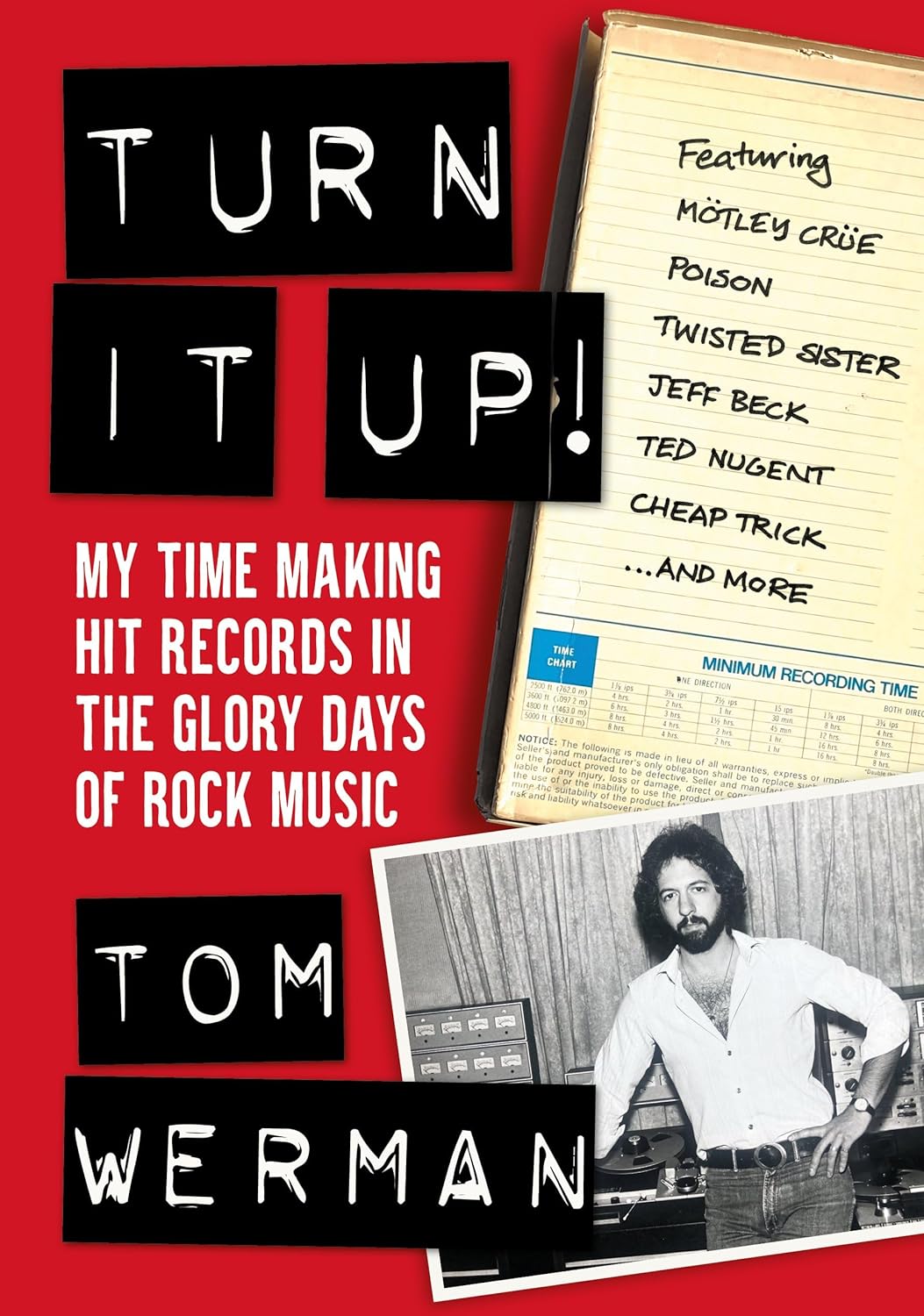 Longtime music industry executive Tom Werman has written a book about his days as a producer for some of the biggest recording artists of the ’70s and ’80s. Turn It Up!: My Time Making Hit Records In the Glory Days of Rock Music (Featuring Mötley Crüe, Poison, Twisted Sister, Jeff Beck, Ted Nugent, Cheap Trick, And More) arrived November 21, 2023, via Jawbone Press. Werman spent the first 12 years of his career at CBS Records (now Sony Music), working for its Epic label. Following his significant success as an executive in the Artists and Repertoire (A&R) department, he moved on to become a much-sought after independent producer. Between the two phases of his career, he produced or co-produced 52 classic rock albums. Werman’s record-making résumé includes 23 Platinum- or Gold-selling albums and cumulative sales of more than 52 million copies. Best Classic Bands spoke to Werman, now 78, by phone recently. Read about his Epic years, signing and producing such stars as Cheap Trick and Ted Nugent here. In part two, we asked him about his outside projects on some of the biggest albums of the ’80s. He didn’t hold back.
Longtime music industry executive Tom Werman has written a book about his days as a producer for some of the biggest recording artists of the ’70s and ’80s. Turn It Up!: My Time Making Hit Records In the Glory Days of Rock Music (Featuring Mötley Crüe, Poison, Twisted Sister, Jeff Beck, Ted Nugent, Cheap Trick, And More) arrived November 21, 2023, via Jawbone Press. Werman spent the first 12 years of his career at CBS Records (now Sony Music), working for its Epic label. Following his significant success as an executive in the Artists and Repertoire (A&R) department, he moved on to become a much-sought after independent producer. Between the two phases of his career, he produced or co-produced 52 classic rock albums. Werman’s record-making résumé includes 23 Platinum- or Gold-selling albums and cumulative sales of more than 52 million copies. Best Classic Bands spoke to Werman, now 78, by phone recently. Read about his Epic years, signing and producing such stars as Cheap Trick and Ted Nugent here. In part two, we asked him about his outside projects on some of the biggest albums of the ’80s. He didn’t hold back.
Werman joined Epic’s A&R team in 1970. In 1982, after working there for a dozen years, he left CBS Records and became an independent producer for the next 18 years.
Best Classic Bands: How was that transition? No looking back?
Tom Werman: It was great! Because I fell into a routine for doing three albums per year. And I took time off in between and I didn’t work for around two months in the summer. It was wonderful. There was enough demand for me to make it so that if you wanted to record when I wasn’t available, it was just too bad. You had to wait. I don’t think I lost any big projects because of that. It was just really easy. After a while, I called the shots, because people came to expect that if I produced a record it would be pretty good.
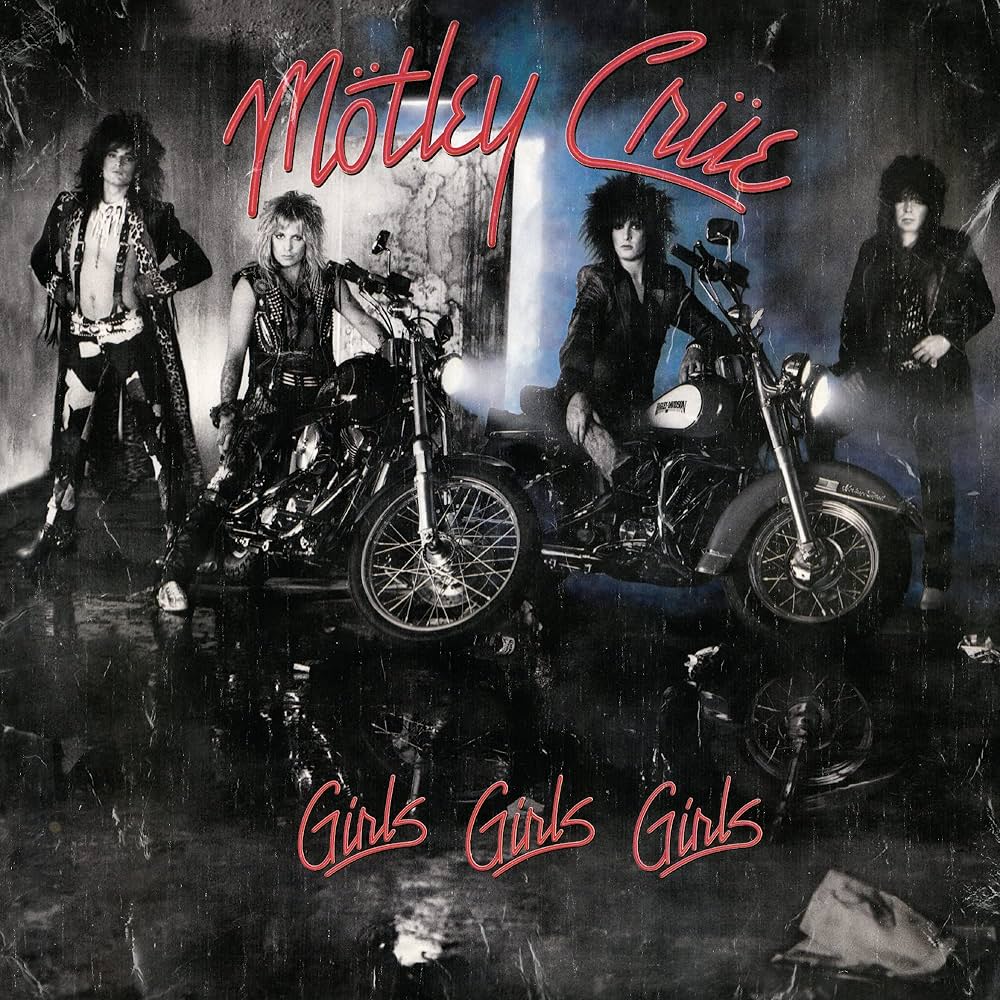 BCB: Tell us about working with Mötley Crüe. You produced three consecutive albums for them—Shout at the Devil, Theatre of Pain and Girls, Girls, Girls—each of which sold over four million copies.
BCB: Tell us about working with Mötley Crüe. You produced three consecutive albums for them—Shout at the Devil, Theatre of Pain and Girls, Girls, Girls—each of which sold over four million copies.
TW: With the Crüe, most of the stuff that people want to hear… they did out of the sessions or out of my sight. I didn’t hang around with them. I didn’t party with them. I’m 15 years older than them anyway. It just didn’t happen. Their behavior… what you hear is what you’d see. They were bad. No question about it. I remember Nikki [Sixx] ran his sports car into a utility pole on the way home while we were doing Shout. He had to finish his bass tracks with his arm in a sling! That was tough. And then there was Vince’s car crash. That was terrible. There was a lot of interesting activity around Mötley Crüe. We could get things done but it was always a bit of a push. But they’d show up. Nikki was very focused. Tommy was very focused. Vince would come in the afternoons and we’d be ready to do vocals and he would sit there dutifully. He would stand behind the mic for hours. But he’d party the night before and have a great time. He didn’t take training very seriously. He didn’t say, “Well, I’m singing every day and I’m doing the vocals for the album. I’d better get some sleep.” He didn’t do that. So there were days when we’d get very little.
Incidentally… that nonsense about Nikki Sixx not playing bass? Complete rubbish. He played every note. I guess Bob Rock, when he was doing the next album after Girls [Dr. Feelgood]… I guess Nikki said something to him which prompted him to say Nikki says he didn’t even play the bass. And the guy who said that he was Nikki Sixx who played him, he was an imposter. He was real but there were no session players.
I only hired session players three or four times on 52 albums. I hired Steve Lukather to play one solo on a Cheap Trick record and Jay Graydon to play a lead guitar solo on [another] Cheap Trick [track]. And a cello player on “Auf Wiedersehen.” Nobody for Mötley Crüe.
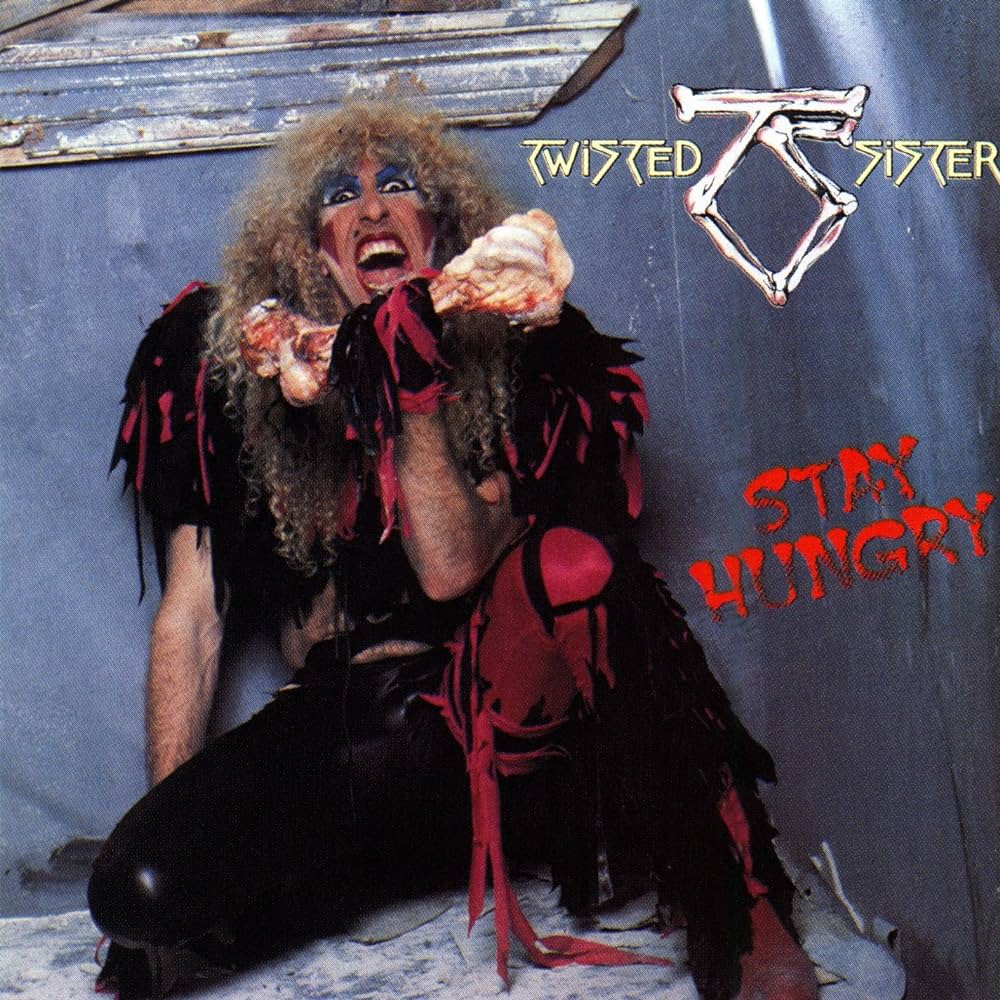 BCB: Let’s turn to your Twister Sister saga with Stay Hungry.
BCB: Let’s turn to your Twister Sister saga with Stay Hungry.
TW: It was a [fairly] uneventful project [though] we had a lot of trouble getting Jay Jay French and his rhythm guitar sound. We did that in New York. Then we went out to LA and finished the record. As soon as we left the studio, Dee Snider started his incredibly unending streak of trash-talking me. He wrote a book saying I personally destroyed their album. Which sold six million copies. He just went on and on. He made stuff up. He has issues. I was really, really blown away by how much hatred and bile he threw in my direction. I still think it was because he had worked so hard on the band. And they worked so hard, for years and years and years. And didn’t get anywhere in this country, really, until they made the record with me. And then he didn’t want to give me any credit. So he said I destroyed the album. And I had a very divisive engineer, Geoff Workman, at the time. I first used him with Dokken. He used to take the leader of the band aside and say I didn’t know anything. [That] he was doing everything. And he was gonna save the record. It was very strange. I’m not very politically hip. I’m usually the last one to find things out. So I didn’t really realize what was going on.
BCB: “We’re Not Gonna Take It” reached just #21, their only top 40 single, but it has clearly developed an afterlife.
TW: One of the most-licensed songs in history! It’s used a lot… movies and ads. All I can do… I emailed him twice to go on his radio show where he also dumped on me. I said why don’t you let me come on and we’ll have a discussion. At least I can give my side of the story. Never heard from him. I don’t care… now. But I was pretty surprised then. Right after the album was finished, I was in Nantucket for a summer vacation and they played an outdoor gig in New Hampshire. And I went up there with my wife and three year-old daughter to see them. To support them. The tour bus was there and after the show they all ran into the bus. We waited outside to say hello in the blazing sun. It was like 90. And we waited there for like 30 minutes. Nobody came out. No one even said we’re not having any visitors. Nobody came out. And I know it’s because “the boss” said, “Don’t talk to that guy. They’re not coming in here.” He had issues. I liked everybody else. I’ve seen Jay Jay since. I got along with everybody. It was fine. As soon as the album was [done], he became my worst detractor. During the album, he was fine. he smiled. Gladhanding. Pat you on the back. Man, it was like Jekyll and Hyde.
BCB: What can you share about working with Poison on Open Up and Say… Ahh?
TW: The Poison guys were great! The whole time. I can’t say enough about them. They were very hardworking. We had only one guest on that whole album… a harmonica player for a few songs.
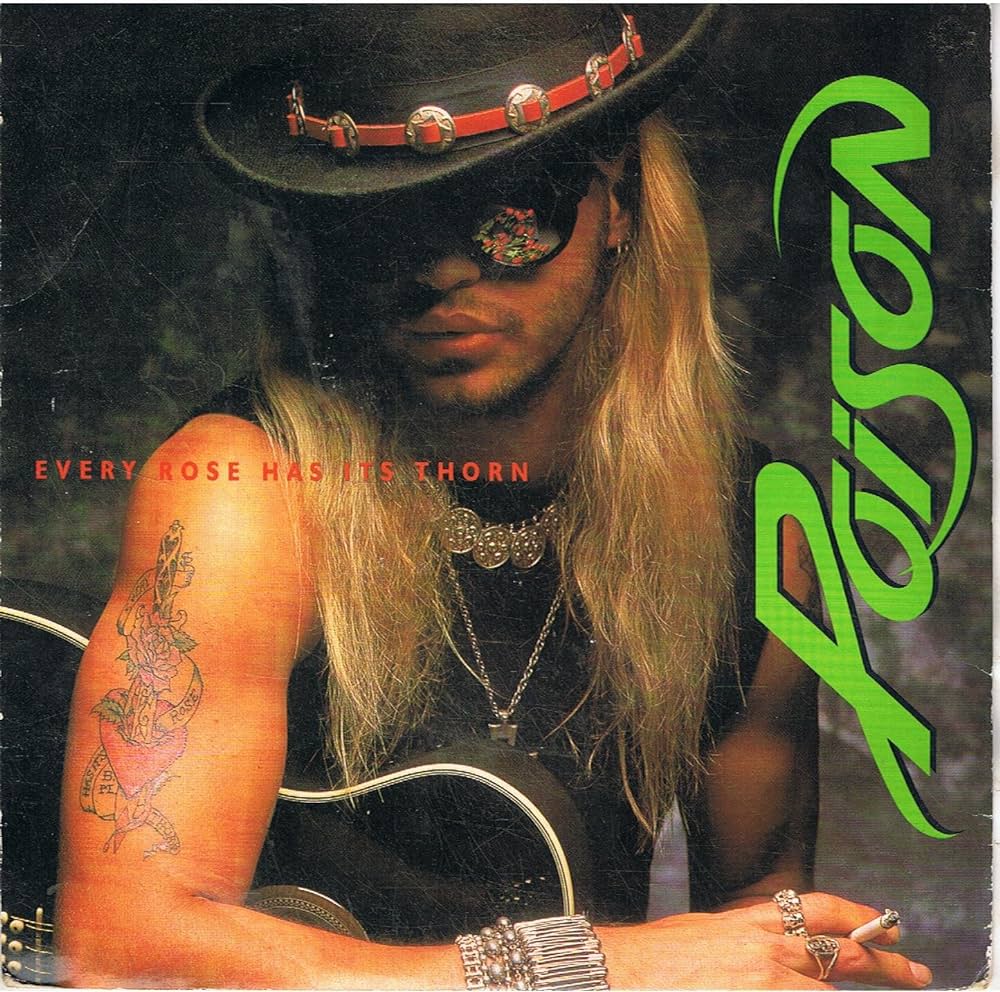 BCB: When you were recording “Every Rose Has Its Thorn,” did anyone have an inkling then that it would be a hit?
BCB: When you were recording “Every Rose Has Its Thorn,” did anyone have an inkling then that it would be a hit?
TW: I was not typically quick to hear a hit. I would hear a song three or four times before it emerged for me. As soon as Bret [Michaels] played this song… I handed him my guitar… and he said, “I wrote a song, I’d like you to hear it.” And he played it and I said, “Oh boy!” Immediately, I knew this was a hit. And I thought it was a good country song. Coincidentally, many years later Miley Cyrus covered it. I said, “You’re gonna play a guitar on the recording and you’re gonna play this guitar.” And C.C. [DeVille] plays all the guitars so this was the one exception where Bret played rhythm guitar.
I knew it was a hit. I kind of, you know, the way I approached that song was what I call the “kitchen sink approach” where I threw everything into it except the kitchen sink. I remember when he “oohs” and “aahs” and pretty things in the middle of the song. It started out simple: acoustic and voice, and ended with acoustic and voice. But in the middle I kind of made a big production out of it. I remember them saying “we might lose all our street credibility [laughs] if you cart this song up too much” but I did what I thought was necessary to make it a hit. And it was.
BCB: I know you’re truly retired now, after spending years as an innkeeper in the Berkshires.
TW: Sold the inn. I’ve never been happier. This is life. I’m out of the traffic. I get up in the morning and I can have a blank slate. Today, I can do anything I want. I can work on the yard. I can read a book. It’s swell. I play a lot of golf.
And catching up on the music I missed. When you come home from a day of recording, you don’t want to put on music.
Turn It Up!: My Time Making Hit Records In the Glory Days of Rock Music (Featuring Mötley Crüe, Poison, Twisted Sister, Jeff Beck, Ted Nugent, Cheap Trick, And More) is available in the U.S. here and in the U.K. here.


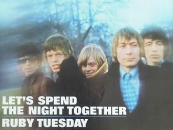
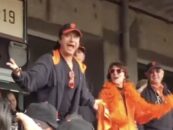

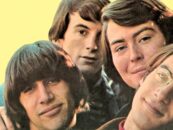

No Comments so far
Jump into a conversationNo Comments Yet!
You can be the one to start a conversation.